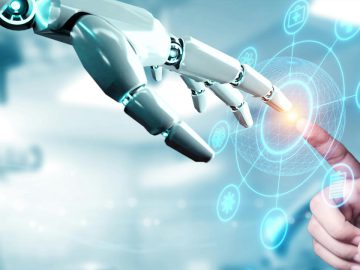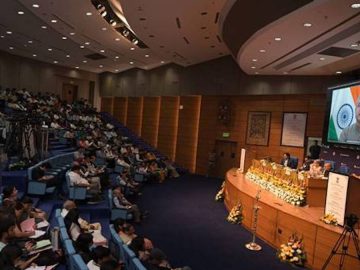Chief marketing officers will have to forge deeper partnerships internally and externally and be comfortable letting go of some areas of responsibilities to trust their direct reports to step up if they truly want to be the new kings and queens of artificial intelligence.
So says a new Forrester Report, “How AI Impacts The CMO”, which predicts that CMOs will have smaller teams but mighter roles as AI takes hold.
While a separate Forrester report forecast that by this year experience with generative AI would be written into 20% of new CMO job descriptions, its analysis of scores of job postings yielded not a single mention of AI responsibility as part of the role.

Despite this, CMOs are not waiting around to advance AI adoption.
However, AI is yet another responsibility piled on top of the expanding CMO remit, and about half of respondents to Forrester’s Q2 B2C Marketing CMO Pulse Survey said they simply do not have time to take on what is necessary to advance AI.
One commentator told Forrester: “CMOs look like they’re playing goalie for the darts team. There’s no time in their day to even entertain thinking about AI.”
Even so, Forrester has identified a number of best practices that CMOs can employ to prioritise AI:
– Deprioritise less essential tasks and get comfortable with delegating them to trusted people on the team. Fewer than one-third (30%) of B2C marketing executives believe their CMOs are directly leading their organisation’s AI efforts.
– Empower the management team. AI cannot be made a priority without rock-solid direct reports who reduce CMOs day-to-day burden. This starts with having the right managers in the right roles and requires CMOs to be clear on expected outcomes and then get out of the way.
– Appoint AI transformation leads. Most CMOs do not – nor should they – have all of the skills needed to fully bake an AI strategy. Every marketing subfunction needs an AI transformation driver. CMOs should bring these leaders together as an AI marketing council.
– Commit to an AI learning agenda. Some CMOs told Forrester that GenAI in particular is already making their jobs easier — for things like thought starters and content summaries. To expand the range of personal use cases, formally schedule dedicated time to learn and apply AI to your actual work.
Nearly all (91%) of the B2C marketing executives Forrester surveyed indicated that their CMO prioritises making time to learn about AI. Still, for those CMOs who are materially advancing AI, that time is usually on nights or weekends.
The report also recommends that CMOs should deepen their collaborartion with CTOs. Traditionally, there has been a lack of evidence of noncontrived partnerships between marketing and technology chiefs. But AI is a mission-critical initiative that requires both roles to be in sync. Spend as much time with the CTO as possible to help make them successful, as they are under incredible pressure with AI, the report says.

CMOs should also double down on big tech. AI has given big tech more power and prominence — shifting how CMOs balance their partner portfolios. Estée Lauder and Coca-Cola are among the latest brands to team up with Microsoft to accelerate their GenAI initiatives — the latter committing $1.1bn to the partnership.
Meanwhile, agency relationships need to be redefined. Of course, CMOs should fully tap the counsel and extended resources of their agencies as part of operationalising AI but there is even more at play, Forrester reckons, as AI fundamentally alters the agency partnership model.
Instead of buying agencies’ time, CMOs will buy agencies’ algorithms. As a result, agencies’ technology-powered products become embedded into CMOs’ operations. This means ensuring that all agency partners are the right strategic fit is even more crucial, resulting in more outcome-linked partnerships and fewer costly agency reviews.
Across both quantitative and qualitive research, CMOs told Forrester that efficiency is their top objective for AI but they continue to be asked to do more with less, making the notion of talent redeployment more of a hope than a certainty.
However, most CMOs are in denial about this. Just 45% agree that AI will lead to smaller marketing departments. But smaller doesn’t mean less effective, says Forrester. AI injects new capability and agility into the marketing function, allowing smaller yet mightier teams to deliver more value by focusing on strategy, creativity, and innovation.
As a result, commoditised marketing activities get done by AI agents. AI automates all marketing processes, but it impacts each differently. Some will still require lots of human involvement, while others will be more autonomous.
Finally, shiny new AI marketing roles will get assimilated. AI will indeed displace some marketing jobs but there will also be new jobs that will emerge. In this regard, history repeats itself when disruptive tech first hits.
The report states: “Remember the webmaster in the 1990s? Or, most recently, the ill-fated chief metaverse officer? While AI marketing specialists continue to crop up, expect their responsibilities to get absorbed as AI matures and becomes part of all marketers’ jobs. However, that doesn’t mean the marketing function of the future looks the same.”
Pfizer global chief marketing offiicer Drew Panayiotou told Forrester: “The role of data engineers in marketing will continue to grow as technology has become a central aspect of the work we do.”
Related stories
Marketers hit by ‘maelstrom of confusion’ over AI tools
Marketers ‘must invest in creativity to get AI to shine’
Copywriters ‘set to drive the next wave of generative AI’
CMOs admit lack of expertise is thwarting AI adoption
AI will give us more time to think creatively, say CMOs
JP Morgan boss: We’ll live to 100 and work less with AI
Ad industry using ChatGPT more than any other sector





